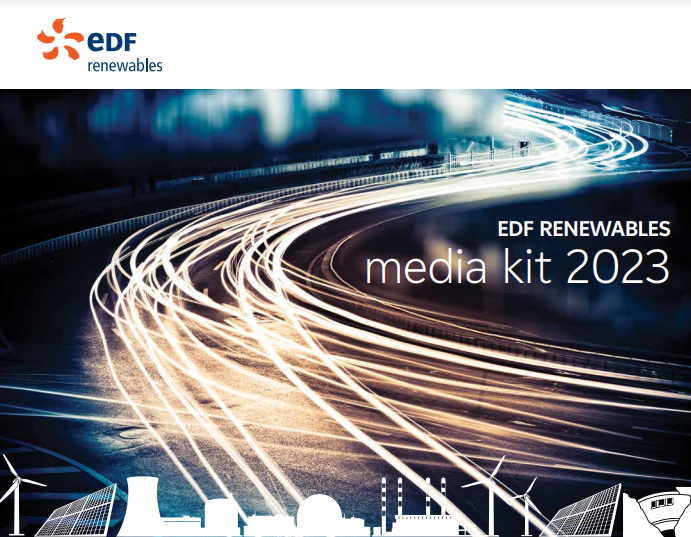- About UsAbout UsWe’re committed to providing future generations with the means to power their lives in the most economic, environmental and socially responsible ways possible.
- What We DoWhat We DoWe are a market-leading, independent power producer and service provider, delivering: wind (onshore and offshore), solar photovoltaic, storage, and electrical vehicle charging.
- Landowners
- Suppliers
- Projects
- Careers
- News
- Contact
Port of San Diego Selects EDF Renewables North America for Microgrid Installation
SAN DIEGO (Dec. 7, 2020) – EDF Renewables North America (EDFR) today announced the awarding of a contract to build a 700 kW / 2,400 kWh Microgrid Infrastructure Project for the Port of San Diego. The Project, designed to island the electrical infrastructure at the Port’s Tenth Avenue Marine Terminal (TAMT), was approved by the Board of Port Commissioners on November 10, 2020. EDFR was selected as the highest ranked proposer demonstrating the most experience and technical expertise, and strong familiarity with the project site.
The Microgrid Infrastructure Project, consisting of a battery storage system and electrical infrastructure, projects $3.2 million in energy savings for the Port during regular operations over 20 years, and aligns with California Government Code 4217 providing the best value to the Port. The system will provide emergency back-up power to the Port-operated facilities, including security infrastructure, lights, offices, and existing jet fuel storage system in support of the Port’s role as a Strategic Port.
Microgrids are innovative systems that integrate batteries, renewable generators, load control, and traditional onsite generators with intelligent componentry to create a system that ensures continuity of operation during power outages. The microgrid at TAMT will advance the Port’s use of renewable energy, reducing greenhouse gas emissions (GHG) on and around the terminal and supports and aligns with the Port’s Climate Action Plan.
Raphael Declercq, EVP, Distributed Solutions & Strategy at EDF Renewables commented, “We are pleased to be selected by the Port to support their energy efficiency and renewable energy ambitions through the Microgrid Infrastructure Project. Our portfolio of solar and storage microgrids with companies throughout the state demonstrates our ability to deliver solar and storage microgrid solutions to ensure reliability of services and to support business operations.”
“The microgrid project provides numerous benefits for not just the Port, but our surrounding communities and region,” said Vice Chair Michael Zucchet, Port of San Diego Board of Port Commissioners. “We’re delighted to be a leader in the process of cargo terminal electrification. Through our testing, monitoring and evaluation, we will share our findings with other ports in California and around the world.”
During typical grid connected operations, the battery system optimizes operations by allowing the facility to draw from the stored energy during the utility’s expensive evening on-peak period. The energy storage system will also reduce utility costs by discharging the battery to mitigate spikes in usage thereby lowering demand charges. Meanwhile, during a power outage, instead of using only a diesel generator for backup power, the Microgrid can support the facility resulting in fuel savings and reduced greenhouse gas emissions.
EDF Renewables Distributed Solutions is a part of EDF Renewables North America, a market leading independent power producer and service provider with 35 years of expertise in renewable energy. The Distributed Solutions group offers on-site clean energy for office buildings, load serving entities, corporates and industrials. The company delivers solar, storage and electric vehicle charging stations as separate products or combined as a full microgrid offering.
###
EDF Renewables North America is a market leading independent power producer and service provider with 35 years of expertise in renewable energy. The Company delivers grid-scale power: wind (onshore and offshore), solar photovoltaic, and storage projects; distributed solutions: solar, solar+storage, EV charging and energy management; and asset optimization: technical, operational, and commercial skills to maximize performance of generating projects. EDF Renewables’ North American portfolio consists of 16 GW of developed projects and 11 GW under service contracts. EDF Renewables North America is a subsidiary of EDF Renouvelables, the dedicated renewable energy affiliate of the EDF Group. For more information visit: www.edf-re.com. Connect with us on LinkedIn, Facebook and Twitter.
About the Port of San Diego
The Port of San Diego serves the people of California as a specially created district, balancing multiple uses on 34 miles along San Diego Bay spanning five cities. Collecting no tax dollars, the Port manages a diverse portfolio to generate revenues that support vital public services and amenities.
The Port champions Maritime, Waterfront Development, Public Safety, Experiences and Environment, all focused on enriching the relationship people and businesses have with our dynamic waterfront. From cargo and cruise terminals to hotels and restaurants, from marinas to museums, from 22 public parks to countless events, the Port contributes to the region’s prosperity and remarkable way of life on a daily basis.
Join Our Press List
- © 2025 EDF Renewables North America
- Privacy Policy
- AB 1305 Disclosure
- TCFD Report



